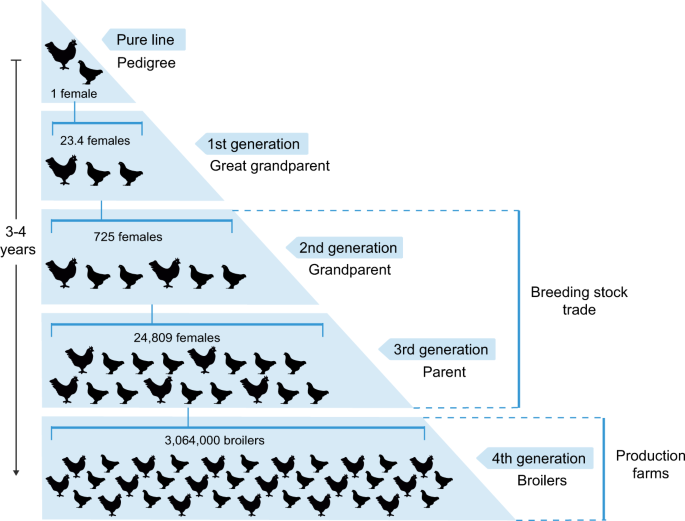A pandemic of Salmonella enterica serotype Enteritidis emerged in the 1980s. A publication by Center for Food Safety, University of Georgia, Griffin, GA (Li, S., He, Y., Mann, D.A. et al. Global spread of Salmonella Enteritidis via centralized sourcing and international trade of poultry breeding stocks. Nat Commun 12, 5109 (2021) describes how Salmonella Enteritidis rapidly swept through continents. The research team hypothesizes that international trade of infected breeding stocks causes global spread of the pathogen. The team presents multifaceted evidence showing a high likelihood, global scale, and extended protraction of Salmonella Enteritidis dissemination via centralized sourcing and international trade of breeding stocks. The research suggests centralized origins were infected breeding stocks. The findings shed light on a significant foodborne risk at a critical, highly agglomerated, and less transparent food chain section. Despite decades of significant progress on Salmonella control in poultry, the evidence provided calls for further investigation and potential intervention into the global spread of Salmonella from centralized origins at the pinnacle of poultry production. @ https://www.nature.com/articles/s41467-021-25319-7#Sec1
Global spread of Salmonella Enteritidis through centralized sourcing and international trade of poultry breeding stocks
Global spread of Salmonella Enteritidis via centralized sourcing and international trade of poultry breeding stocks - Nature Communications
Salmonella enterica serotype Enteritidis is a pathogen of poultry that can cause outbreaks in humans. Here the authors use genomic and trade data to investigate a pandemic in the 1980s, finding evidence that international trade of breeding stocks led to global spread of the pathogen.
No comments

